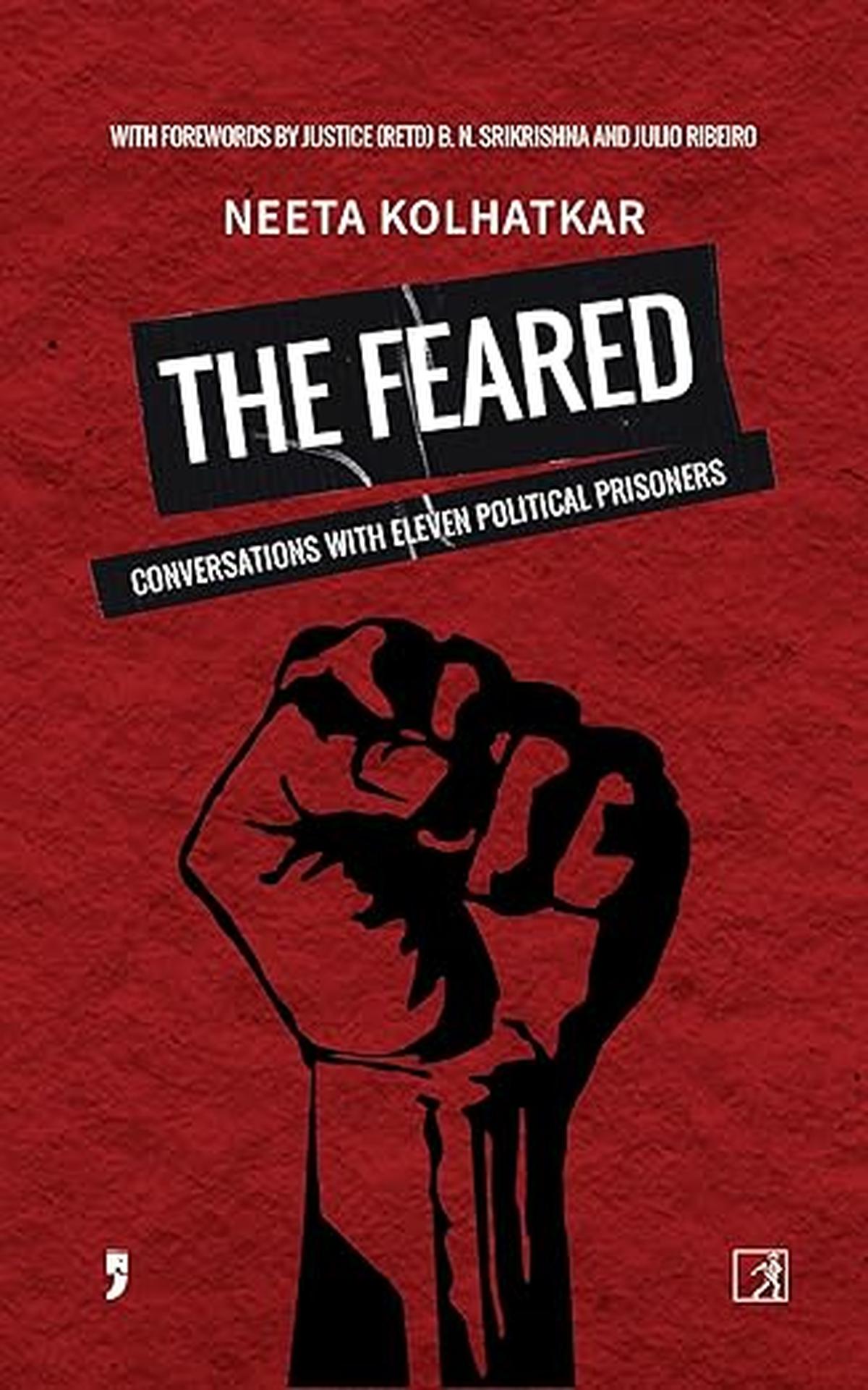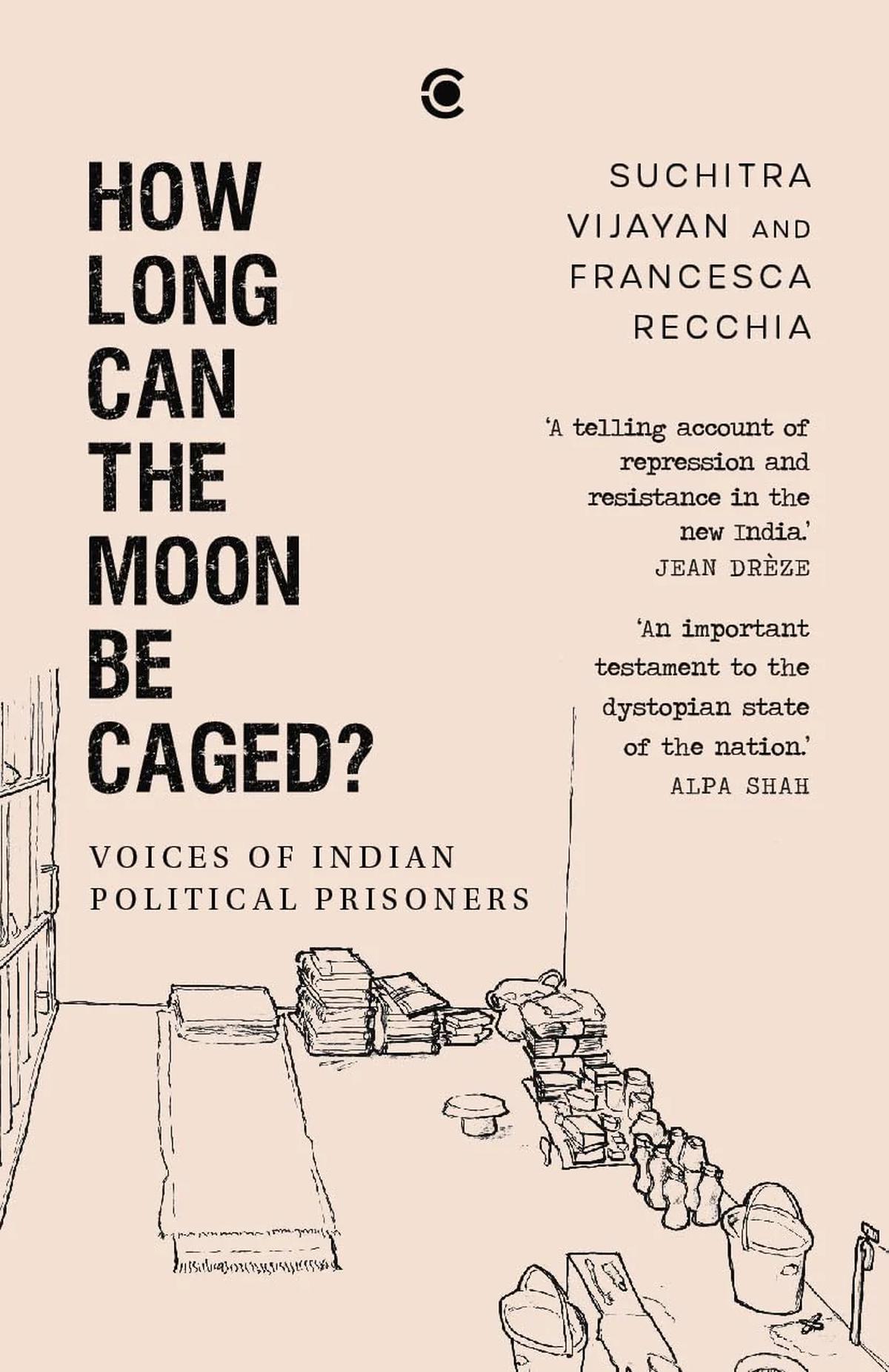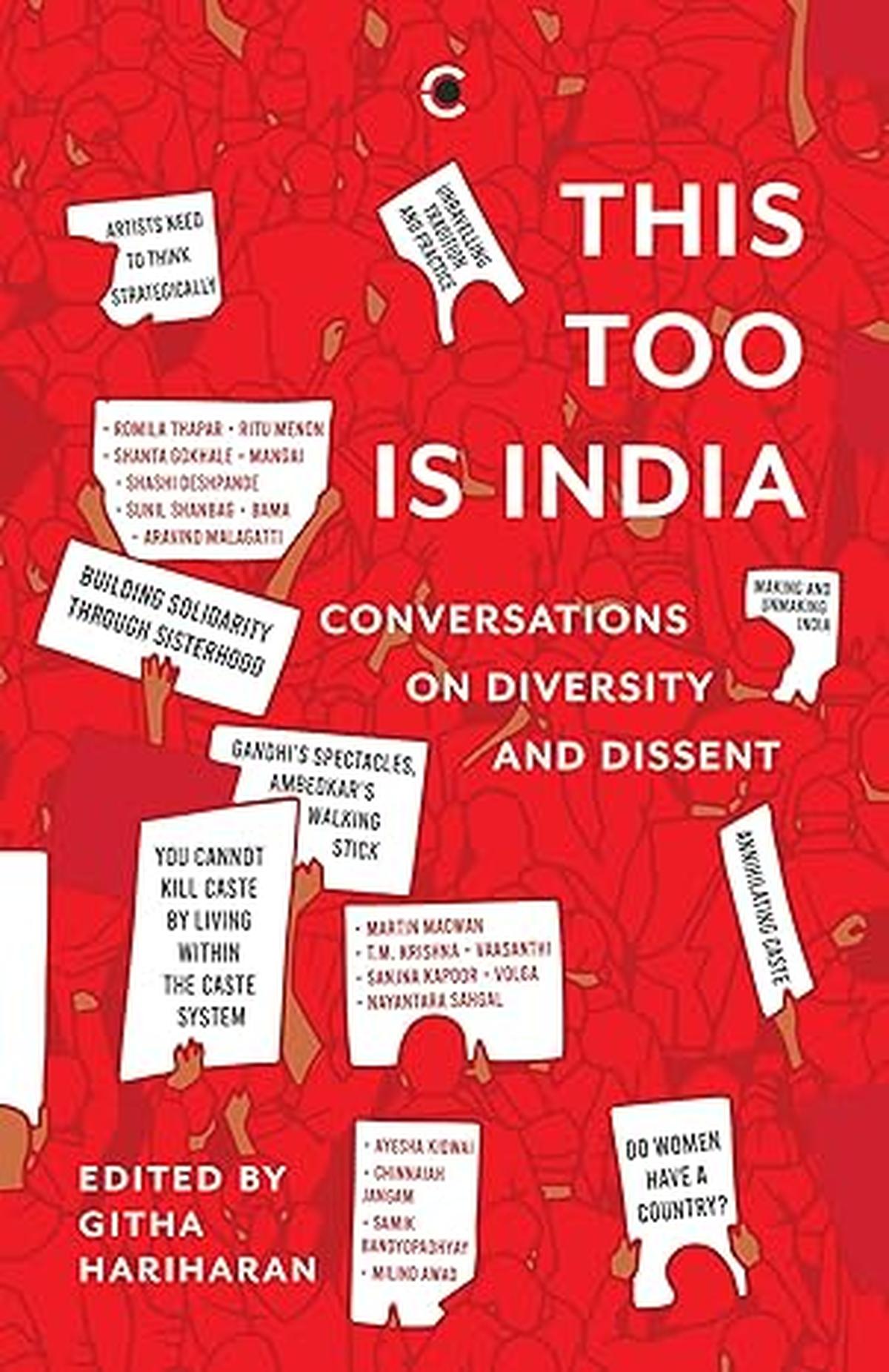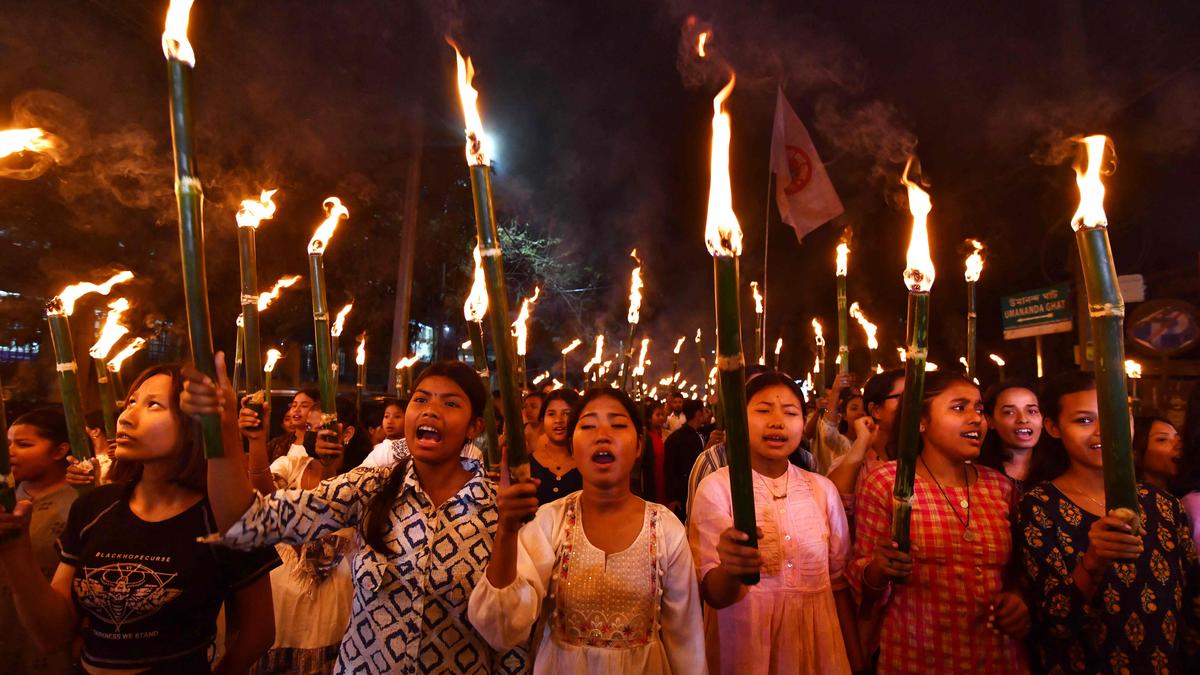Members of the All Assam Students’ Union (AASU) take part in a torch rally as they protest against the implementation of the Citizenship Amendment Act (CAA) in Guwahati on March 12, 2024.
| Photo Credit: AFP
Under Article 19(1)(a) of the Constitution, which guarantees freedom of speech and expression, citizens have the right to dissent. But throughout Indian history, jails have bulged with political dissenters.
Dissent is not just about anger, but about having a rival articulation of the world, argues American historian Timothy Snyder. Yet, in a practising democracy like India with a constitutional government, rule of law, and an independent judiciary, the government of the day often cracks down on dissent using political imprisonment as a tool to crush it.
But can dark prison walls shut out those who are fighting for a better world, particularly for the vulnerable sections of society? The voices of political activism need to be heard and several books have documented the experience of prisoners incarcerated for their beliefs and not necessarily their actions.
Inhumane conditions
“The first night in jail is reputed to be the hardest. After that, you learn how to survive, though many prisoners carry lifelong scars.” These lines from journalist Neeta Kolhatkar’s The Feared: Conversations with 11 Political Prisoners (Simon & Schuster) hit you hard as she puts together conversations with political prisoners lodged in multiple prisons across the country, on their everyday lives behind bars. The interviewees include Sudha Bharadwaj, Sanjay Raut, Anand Teltumbde, Binayak Sen, and Kishore Chandra Wangkhem, who highlight the horrible conditions relating to space, hygiene, medical attention, and food. The accounts also focus on unexpected bonds that are formed within the prison walls for survival.

The absurdity of life counts because not many topics are more heated and the sources more tendentious than perhaps the humiliating treatment meted out to prisoners. Activist Kobad Ghandy who was arrested by the Delhi Police in 2009 under the UAPA (Unlawful Activities Prevention Act) and has also written a candid memoir Fractured Freedom: A Prison Memoir (Roli Books), tells Kolhatkar that he has wondered many times if he would come out alive. Ghandy who languished in different jails for a decade, says Tihar is designed to break one psychologically. “It was terrible, run in mafia style; it was the same in Gujarat jail and Jharkhand (to a lesser extent). In Andhra Pradesh, it was more humane,” he tells the author.
Apart from revealing the loss and struggles of the prisoners, Kolhatkar’s book turns the attention to the injustices meted out to thousands of undertrials through the narratives of her interviewees who talk about overcrowding, that adversely affects living conditions, the compromised prison management system and the limited access for prisoners to meaningful programmes related to rehabilitation. For instance, Muralidharan K., arrested for the first time during the Emergency and again by the Maharashtra ATS in 2015 under UAPA and released on bail in 2019, says while the philosophy of a prison is to rehabilitate a person, it actually doesn’t happen. His trial is yet to start.
Censored news
The adaptation to prison life is never easy with authorities placing impediments and denying even basic rights like reading. Newspapers are handed out after snipping the articles that authorities don’t want the prisoners to read. “There seems to be some sort of central direction to all the prison authorities to act tough with the Maoist prisoners,” says Muralidharan.
Kolhatkar also looks at the psychological changes prisoners undergo in order to be able to live on, though the effects of incarceration varies from person to person.

Another aching book that looks at present-day India through the lived experiences of political prisoners is How Long Can The Moon Be Caged: Voices of Indian Political Prisoners (Context) by Suchitra Vijayan and Francesca Recchia. It details the political reality of the present time and shows how expressions of resistance are also a liberation from repression. The authors analyse firsthand testimonies of those falsely accused of inciting the Bhima Koregaon violence, the activists of the Pinjra Tod movement (that started in Delhi to protest the restrictive rules for women in hostels and paying guest accommodations and spread as a feminist movement across India), and the student leaders who opposed the new discriminatory citizenship law passed in 2019. By bringing many voices together, the book unveils a state that is fearful of its peoples’ dreams and how it punishes any criticism. But it is also a celebration of the courage and the moral integrity of those jailed for standing in solidarity with marginalised and oppressed communities.
Complexities of India

This Too Is India: Conversations of Diversity and Dissent (Context), edited by Githa Hariharan, is an interesting take on politics, history, culture through essays by novelists, activists, historians, actors, musicians and translators. Twenty thinkers including Romila Thapar, Shanta Gokhale, Nayantara Sahgal, T.M. Krishna, Bama, Sanjana Kapoor, Shashi Deshpande unravel the complexities of India. Drawing from their experience, they chart out what it means to live in a diverse country. The importance of democratic politics, logical reasoning, secular imagination, ethical consideration, inclusivity and hearing multiple and dissenting voices is the way forward, they say, to glue the pieces of the mosaic that is India. In The Incarcerations – Bhima Koregaon and the Search for Democracy in India (HarperCollins), Alpa Shah explores the case of 16 “custodians of democracy” who were labelled “urban Naxals” and thrown into jail without trial and credible evidence in 2018. The author tells the story of the Bhima Koregaon case in which professors, lawyers, journalists and poets were identified as Maoist terrorists and charged with inciting violence. In their search for democracy, the book also tells the story of India’s minorities, the Dalits, Adivasis and Muslims.
Exposing the existing social and political order, the whistleblowers or the torchbearers of truth become political prisoners. Their stories need to be told to safeguard their right to resist and speak truth to power.
Published – March 06, 2025 08:30 am IST
